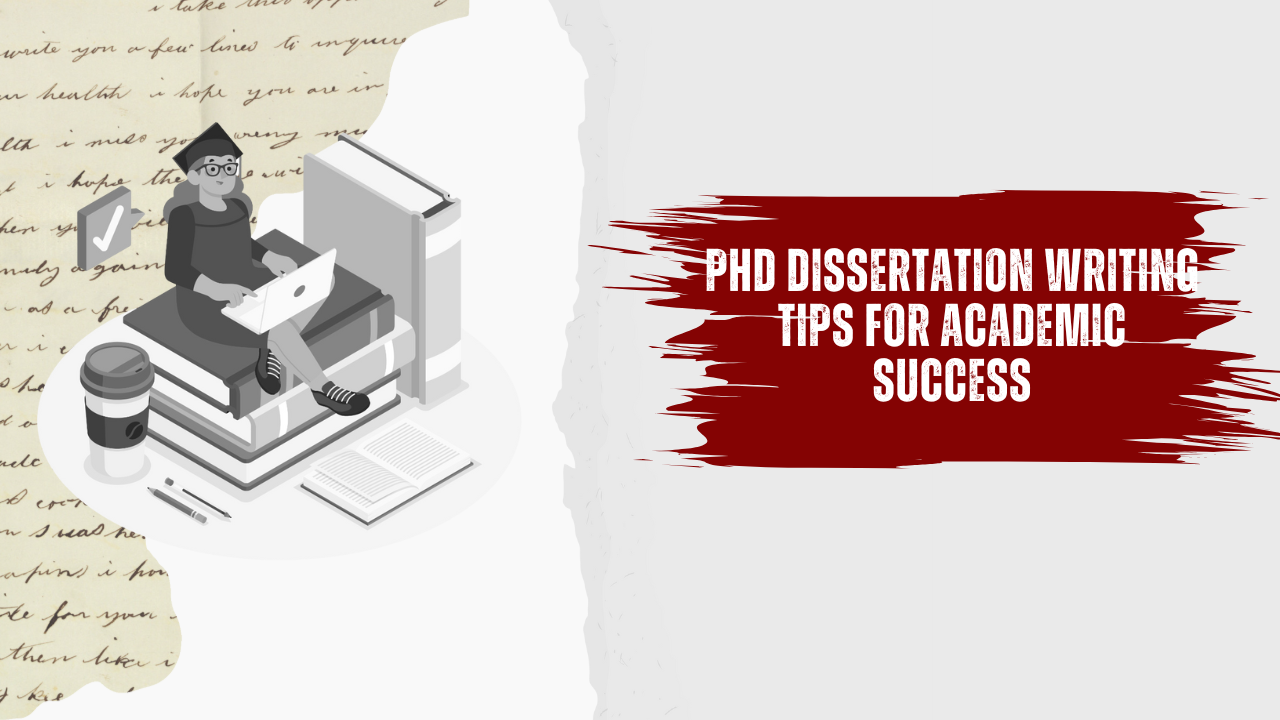21Jun

Writing a PhD dissertation is one of the most challenging academic tasks you’ll face, but it’s also one of the most rewarding. This PhD Dissertation Writing process is not just about showcasing what you know—it’s about making a unique contribution to your field of study. Whether you’re just starting or knee-deep in PhD Dissertation Writing, these tips will help you stay focused, productive, and on the path to academic success.

Your PhD dissertation is more than a final paper—it’s a scholarly milestone that demonstrates your ability to conduct independent research, present findings clearly, and engage with academic discourse. A well-written dissertation can open doors to publications, post-doctoral opportunities, and academic careers.
But getting there isn’t easy. The process demands time, discipline, and a clear strategy. Here’s how to navigate it with confidence.
Before you even begin writing your dissertation, you’ll need to craft a research proposal. This is the blueprint of your entire study.
Key components of a strong proposal:
Tip: Structure your PhD proposal carefully—it sets the tone for your dissertation journey.
A successful dissertation starts with a topic you’re passionate about and one that offers room for original research.
Criteria for a great topic:
Time management is critical in the PhD journey. Avoid burnout and last-minute rushes by setting a realistic timeline.
Break your work into phases:
Use tools like Gantt charts, Trello boards, or even simple to-do lists to stay on track.
Tip: Always build in buffer time for unexpected delays or supervisor feedback.
A literature review isn’t just a summary of previous work—it’s a critical analysis that positions your research within the academic landscape.
Tips for a strong literature review:
Remember: Your literature review forms the foundation for your theoretical framework.
Academic writing has its own tone and structure. Consistency and clarity are key.
Key writing tips:
While structures vary slightly between disciplines, most PhD dissertations follow this structure:
Pro Tip: Use headings and subheadings to guide the reader through your work.
Don’t wait until your dissertation is fully written to show it to your advisor. Early feedback saves time and helps you stay aligned with academic expectations.
How to get useful feedback:
Tip: Be open to criticism—it’s a stepping stone to improvement.
One of the most overlooked steps in PhD dissertation writing is thorough editing and proofreading.
Steps to polish your work:
Kenfra Tip: Kenfra offers expert proofreading services to help ensure your dissertation is publication-ready.
Originality is a cornerstone of academic writing. Even unintentional plagiarism can derail your dissertation submission.
Best practices:
Tip: Kenfra provides advanced plagiarism checking and guidance to ensure your work is 100% original.
The PhD journey can be mentally exhausting. Prioritize self-care to maintain productivity.
Quick self-care tips:
Reminder: A successful dissertation is written by a healthy and balanced mind.
PhD Dissertation Writing isn’t a one-size-fits-all process. It takes planning, discipline, and ongoing revision. But with the right approach and mindset, you can achieve academic success and make a meaningful contribution to your field. Every chapter you write as part of your PhD Dissertation Writing journey brings you one step closer to graduation. Keep going, stay focused, and remember why you started.
Kenfra Research understands the challenges faced by PhD scholars and offers tailored solutions to support your academic goals. From topic selection to advanced plagiarism checking.

Follow the Essential Guidelines for Writing a Thesis. writing a thesis can be one of the most challenging yet rewarding... read more

If you are dreaming of pursuing doctoral studies, choosing from the top PhD universities in India can shape your academic... read more

Writing a literature review is a crucial step in academic research. It serves as the foundation for your research... read more
ICAR (Indian Council of Agricultural Research) PG and PhD results for 2023 have been declared on the official website icar.nta.nic.in,... read more
The PhD Project is a non-profit organization that was created to increase the diversity of business school faculty. This organization... read more

Writing a standout PhD dissertation is one of the most important parts of your academic journey. It reflects your research... read more
The statement suggests that there are plans to introduce scholarships for MPhil and PhD students who wish to pursue their... read more

Publishing your research in reputed journals is essential for academic growth and recognition. Among these, UGC CARE Journals stand... read more
WhatsApp us
Leave a Reply